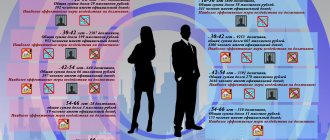Select your region
Deputy Head of the Department of the Federal Bailiff Service for the Amur Region Sergei Kolesnikov and Chief Specialist-Expert of the Department for Organization of Enforcement Proceedings of the Federal Bailiff Service of Russia Olga Zavarzaeva. Photo: Anton SIROTOV
Readers’ questions about whether it is possible to collect alimony for an adult child, how to check the income of a former spouse and what to do if the bailiffs do their job poorly were answered by the deputy head of the department of the Federal Bailiff Service for the Amur Region, Sergei Kolesnikov and the chief expert specialist of the organization’s department enforcement proceedings of the Federal Bailiff Service of Russia Olga Zavarzaeva.
— Hello, my name is Tatyana.
How to prove the income level of alimony payer
The most difficult practical question that is included in the subject of proof in alimony cases is the following: what is the real level of the defendant’s salary?
You can use SPS Consultant Plus. read the judicial practice and try to decide on the issue within the framework of the law. For example, request information, involve the employer as a witness. But, it is best for a lawyer or advocate to conduct his own “investigation”: talk to the employer and explain that the defendant wants to deprive his child of the required funding.
How to confirm my husband's income for alimony?
1. In the absence of an agreement between the parents on the payment of alimony for minor children and in cases where the parent obligated to pay alimony has irregular, variable earnings and (or) other income, or if this parent receives earnings and (or) other income in whole or in part in kind or in foreign currency, or if he has no earnings and (or) other income, as well as in other cases, if the collection of alimony in proportion to the earnings and (or) other income of the parent is impossible, difficult or significantly violates the interests of one of the parents. parties, the court has the right to determine the amount of alimony collected monthly, in a fixed sum of money or simultaneously in shares (in accordance with Article 81 of this Code) and in a fixed sum of money.
Salary
When considering cases of recovery of wages based on the claims of employees whose labor relations are not formalized in accordance with the procedure established by law, the courts should take into account that in the absence of written evidence confirming the amount of wages, the court has the right to determine its amount based on the usual remuneration of an employee of his qualifications in given locality, and if it is impossible to establish the amount of such remuneration - based on the amount of the minimum wage in the constituent entity of the Russian Federation (Part 3 of Article 37 of the Constitution of the Russian Federation, Article 1331 of the Labor Code, paragraph 4 of Article 1086 of the Civil Code).
Is it possible to prove the real earnings of the ex-husband and calculate alimony from him?
If you go to court with a claim to determine the collection of alimony in a fixed amount, you do not at all have to present the court with a certificate of the exact amount of your spouse’s income (besides, no one will give it to you), it is enough to simply prove that your ex-spouse provided false information about their income. (testimony of witnesses, presence of any large purchases, etc.)
In general, for providing false information about income and property status, failure to report dismissal from work, a new place of work or place of residence, the bailiff may apply enforcement measures to the debtor: in accordance with Art.
Interpersonal relationships in a family are always difficult and confusing. Spouses quarrel and make up, get together and separate, and eventually get divorced. But what about minor children?
How to collect child support from unpaid income?
From one or both parents who do not provide maintenance to their minor children, alimony can be recovered through the court (clauses 2, 3 of Article 80 of the RF IC). Often, alimony is withheld from the parents’ earnings, which includes all types of wages (monetary remuneration, maintenance) and additional remuneration at the main place of work and for part-time work in cash and in kind (Article 82 of the RF IC; clause 1 of the List, approved Decree of the Government of the Russian Federation of July 18, 1996 N 841). Also, alimony can be withheld from other income that does not relate to wages (hereinafter referred to as non-salary income). Let us consider the features of collecting alimony from such income.
1. Income (except for wages) from which alimony may be deducted Non-salary income from which alimony may be deducted includes, in particular (clause 2 of the List): 1) all types of pensions, taking into account monthly increases, allowances, raises and additional payments to them, established for certain categories of pensioners (except for pensions in the event of the loss of a breadwinner, paid from the federal budget, and payments to them from the budgets of the constituent entities of the Russian Federation); 2) scholarships that are paid to students in educational institutions of primary, secondary and higher vocational education, graduate students and doctoral students studying off-the-job in graduate school and doctoral studies at educational institutions of higher vocational education and research institutions, students of theological educational institutions; 3) income from engaging in entrepreneurial activity without forming a legal entity, minus the amounts of expenses associated with the implementation of this activity; 4) income from the lease of property; 5) income from shares and other income from participation in the management of the organization’s property (for example, dividends, payments on equity shares); 6) the amount of compensation for damage to health; 7) income from the sale of copyright and related rights, for the performance of work and provision of services, for example, from notarial and advocacy activities. Withholding of alimony is also possible from amounts of income (remuneration) under civil contracts, by concluding which a person exercises his right to work or uses his abilities and property for economic activity, for example, under work contracts. Income received by a citizen outside of his labor and economic activities cannot be subject to alimony, in particular, in one-time transactions for the sale of real estate (apartment, land, garden house, etc.) (clause “o” of clause 2 of the List ; Determinations of the Constitutional Court of the Russian Federation dated January 17, 2012 N 122-О-О and May 11, 2012 N 800-О-Р). Alimony can be collected from non-salary income simultaneously with the collection of alimony from wages or without the collection of alimony from wages (for example, if the parent does not receive it).
2. Amount and procedure for collecting alimony As a general rule, alimony is collected in court monthly in proportion to the parent’s income: for one child - 1/4, for two children - 1/3, for three or more children - half (clause 1 Article 81 of the RF IC). Also, alimony can be collected in a fixed sum of money or simultaneously in shares and a fixed sum of money if, for example, a parent receives irregular or variable income or does not have it at all (Clause 1 of Article 83 of the RF IC). When collecting alimony in a fixed sum of money, it does not matter from what income they will be paid, therefore, the procedure for collecting them is not considered further. A demand for the recovery of alimony in proportion to the non-salary income of the parent can be submitted by order or, if there are appropriate grounds, by claim proceedings.
2.1. Collection of alimony in the order of writ proceedings In order of writ proceedings, in particular, demands for the collection of alimony for minor children are considered, if they are not related to establishing paternity, challenging paternity (maternity) or the need to involve other interested parties (Part 1 of Article 121, Article 122 of the Code of Civil Procedure of the Russian Federation). At the same time, alimony in a fixed amount cannot be collected on the basis of a court order. In this case, alimony is subject to recovery in the manner of claim proceedings (clause 3 of the Resolution of the Plenum of the Supreme Court of the Russian Federation dated December 26, 2017 N 56). To collect alimony from non-salary income through writ proceedings, we recommend following the following algorithm.
Step 1. Prepare an application for a court order and documents for applying to court. The application must indicate (Part 2 of Article 124 of the Code of Civil Procedure of the Russian Federation): 1) the name of the court to which the application is being submitted; 2) last name, first name, patronymic (if any) of the claimant, his place of residence; 3) last name, first name, patronymic (if any) of the debtor, his place of residence, and also, if known, date and place of birth, place of work and one of the debtor’s identifiers (in particular, SNILS, INN, series and number of the identity document , driver's license, vehicle registration certificate); 4) the claimant’s claim and the circumstances on which it is based; 5) documents confirming the validity of the claimant’s claim; 6) list of attached documents. In this case, the requirement set out in the court order must be indisputable, that is, supported, among other things, by written evidence, the reliability of which is beyond doubt (clause 3 of the Resolution of the Plenum of the Supreme Court of the Russian Federation dated December 27, 2016 N 62). The following documents must be attached to the application (clauses 5, 6, parts 2, 3, Article 124 of the Code of Civil Procedure of the Russian Federation): 1) marriage certificate or divorce certificate (if the marriage is dissolved); 2) birth certificates of children; 3) documents on the debtor’s income, if any (for example, a work contract or a service agreement); 4) a document certifying the authority of the representative (if the application is submitted through a representative). The claimant does not need to pay state duty. It is subject to payment by the debtor, which must be indicated in the court order (clause 8, clause 1, article 333.20, clause 2, clause 1, article 333.36 of the Tax Code of the Russian Federation; Information letter of the Moscow Regional Court dated January 12, 2005).
Step 2. Submit the application and documents to the magistrate The application can be submitted to the magistrate at the place of residence of the debtor or at your place of residence (Clause 1, Part 1, Article 23, Article 28, Part 3, Article 29, Part 1, Art. 123 Code of Civil Procedure of the Russian Federation).
Step 3. Wait for the court to consider the application. A court order on the merits of the stated claim is issued within five days from the date of its receipt by the court without summoning the claimant and debtor and conducting a trial. A copy of the court order will be sent to the debtor, who, within 10 days from the date of receipt of the order, has the right to submit objections regarding its execution (Articles 126, 128 of the Code of Civil Procedure of the Russian Federation).
Step 4. If there are no objections from the debtor, receive a court order to collect alimony. If the debtor does not submit any objections to the court within the prescribed period, the judge will issue you a second copy of the court order, certified by the official seal of the court, to present it for execution. At the request of the claimant, the court may send a court order for execution to the bailiff (Part 1 of Article 130 of the Code of Civil Procedure of the Russian Federation).
2.2. Collection of alimony through a lawsuit The judge will cancel the court order if the debtor raises objections regarding its execution within the prescribed period. In this case, the demand for the collection of alimony can be filed in the manner of claim proceedings (Article 129 of the Code of Civil Procedure of the Russian Federation). It is necessary to draw up and submit a statement of claim, which is submitted to the district court at the place of residence of the plaintiff or defendant (Articles 24, 28, Part 3, Article 29 of the Code of Civil Procedure of the Russian Federation).
Note! If the claim for the collection of alimony is subject to consideration in the order of writ proceedings, then the statement of claim filed in violation of this order is returned by the court to the applicant (clause 1.1, part 1, article 135 of the Code of Civil Procedure of the Russian Federation).
What are the risks of concealing income when paying alimony?
Until the age of 18, any child by law has the right to financial support from his parents. This means that before their child reaches full adulthood, father and mother are obliged to create all conditions for his growth and development.
First of all, we are talking about help with:
- food and accommodation;
- social and domestic needs (clothing/shoes, utility bills for water/gas/electricity, payment for studies and attendance at general development sections/clubs, etc.);
- treatment and improvement of the child and other aspects.
Quite often in life it happens that the parents had a fight, divorced, or even simply separated, and the unfortunate father considered himself absolutely free from the problems of his child. All concerns about well-being and normal physical/intellectual development fall on the shoulders of the mother.
The law strictly persecutes such men. There are all legal grounds for forced collection from the father’s income of necessary and sufficient funds for the benefit of his child.
Art. 157 of the Criminal Code of the Russian Federation indicates the degree of guilt of the ex-husband, who, contrary to the court decision, does not pay the indicated amount of alimony for his children in equal parts:
- a year of correctional and/or forced labor;
- stay in pre-trial places of deprivation of liberty (in the correctional facility) for 3 months;
- serving a sentence in the zone for 1 year.
How to find out your ex-husband's salary?

There are frequent cases when one of the parents (most often this is an ex-husband who has withdrawn from living together with the child and raising him) hides his actual earnings.
The purpose of this lie is to avoid paying child support at all costs. The question of how and where to find out what kind of salary an ex-husband gets is asked by many women.
You can only obtain information about another person’s salary through the court: a court employee, a bailiff, sends a court request (an official letter) to the pension fund to find out the amount of deductions that are withheld from this person’s salary.
In this case, the pension fund will indicate only the amount of deductions as a percentage, which assume deductions for the monthly salary + bonuses + 13th salary and other income. Those. It will still be possible to find out the exact amount of the salary only approximately.
When is it impossible to prove that the alimony provider is hiding his real income?
Often, collecting evidence that the alimony provider is hiding his real income comes down to the human factor.
Those. when the persons involved in the issuance, preparation and collection of documents do not perform their tasks very responsibly or simply refuse to issue the requested documents. What to do in such a situation? Seek help from the court from a bailiff - a person who is competent enough and has sufficient authority to contact the tax service, pension fund and other services to obtain documents on salary and deductions.
Hire a lawyer. A lawyer has the same powers as a bailiff and legally has the right to demand the above documents.
Where to contact?
Depending on the specifics of each specific case, a competent lawyer will accurately identify a legal act on the basis of which it is easy to prove violations of the rights of a child and will be able to competently build a line of defense.
In other words, the first person you should turn to for help is a lawyer.
The law provides two ways to calculate child support:
- mutual mutual consent of the parents, certified by a notary;
- a reasoned conclusion of a judicial process, taking the form of a decision on the payment of alimony by a spouse.
The first method is an agreement between two responsible people (a man and a woman), who themselves have determined a sufficient amount. The notary's seal and signature are a conditional formality. Although, if one of the parties fails to fulfill its obligations under such an agreement, this document is full-fledged evidence for going to court.

The second way is to directly go to court. Here you can also avoid lengthy court proceedings if you indicate in your application the need to obtain a court order for alimony.
But when the party applying to the court (a woman with a child) indicates in her application that the husband is evading payment of alimony, and there are facts of such behavior, then a full-fledged lawsuit will be required.
How to prove concealment of income for alimony payments?
What should a woman do if she finds out that the court-ordered alimony is being withheld from her ex-husband in a smaller amount than it should be? This happens if the husband deliberately hides his earnings and partially receives his salary “in an envelope” by agreement with the management of the enterprise.

Facts confirming fraud:
- a sharp decrease in the salary rate after the court has appointed the amount of alimony;
- purchase of expensive material assets by the husband after divorce;
- opening a bank account;
- official dismissal from work, but no registration with the Employment Service and other grounds.
In these cases, the woman must go to court, and the concealment of her salary by her husband will be investigated in detail.
Let's play detective
1. First, you need to take measures to find the property of your ex-spouse, which he could not purchase with the same 10,000 from renting out the apartment.
To do this, through the Bailiff Service, you need to request information from Rosreestr about the availability of real estate from the debtor.
Make a written request to the traffic police to obtain information about the debtor’s ownership of vehicles and the grounds for their acquisition.
2. Determine the debtor’s place of work (if the ex-spouse claims that he is not employed and does not receive a salary).
If the debtor is not officially registered at the place of work, but you know about it, I advise you to file a written complaint with the labor and tax inspectorates. During the inspection, the Federal Tax Service will establish the fact that your ex-spouse is working without registration.
We will be interested in the results of the inspection by the supervisory authority - we can use them as evidence in court.
3. What if the alimony payer himself, the ex-husband, helps us?
For example, your ex wanted to take out or took out a loan for a coffee machine worth 50,000 rubles and told the bank that his monthly income is 80,000 rubles.
Or maybe he took out a car loan and provided a 2-NDFL certificate with the stamp and signature of the organization where he was employed? Moreover, the certificate indicates the amount is 3 times more than what he reported to the bailiffs.
How can you find out all this and use it as evidence?
We submit an application to the Bailiff Service to send a request to obtain information from the Credit History Bureau, which contains information about requests for all loans.
Examples from judicial practice

The official practice of judicial records management in the Russian Federation has enough examples of life situations when a civil/criminal case was initiated for a spouse’s evasion of paying child support, for concealing their real income and other frauds.
Almost always, the court takes the side of the mother and minor child, since this position is clearly visible in the laws of the state.
The court, by law, will determine the degree of subsequent participation of the spouses in the upbringing and maintenance of their common children until they come of age.
After the final court decision is made, the parties must strictly fulfill the obligations prescribed by the court. Otherwise, the law considers persons who evade compliance with a court decision to be criminals and prescribes criminal penalties for them.
If it was not possible to reach peace agreements

If it is not possible to resolve the issue peacefully and the husband does not want to pay money to provide for his child, then he will have to go to court. You can prove your ex-husband’s income for alimony in the magistrate’s court at the defendant’s place of residence, i.e. your spouse. According to the law, each parent is obliged to support the child until the age of 18. If the husband does not want to pay, then before going to court, a complete evidence base should be collected. There is no need to justify your spouse, because it is not only the woman who relies on the well-being and decent standard of living of the child.
In our country today, the situation is such that after a divorce, many wives agree to receive alimony by oral agreement, and not by written agreement. As a rule, the man sets the conditions - he states the amount of payments and the timing of the transfer of money. As a result, the woman faces constant delays and receiving insufficient amounts, and subsequently, the delay is extended for two to three months, and then a year or six months. Reasons why men do not want to pay money:
- Revenge - the ex-husband makes attempts to take revenge on his wife if she is the initiator of the divorce.
- Lack of parental instinct - this is what women who protect their man from all worries related to the upbringing and development of a child face.
- Lack of income or place of work - you first need to check whether there is malicious intent in not transferring money, and only then bring them to justice.
- Selfishness - there is no sense of innate responsibility, because a person is used to caring only about himself.
Evidence of malicious evasion of alimony
If the divorced spouses signed a written agreement to transfer funds to provide for their common children, but the money was not transferred, you must provide the court with papers proving this fact. An additional argument may be testimony, for example, from immediate relatives who can confirm selfish intentions of refusing to pay funds or defending the rights of their child. The following information may be provided as other evidence:
- Video materials.
- Official correspondence, including via the Internet.
- Recordings of telephone conversations.
Evidence, in accordance with the law, must have legal force. If this is filming, then both spouses must agree to such a procedure. In addition, when providing written documents

from the Pension Fund or the Tax Service of the Russian Federation, they must bear the seals of authorized persons of these institutions.
To confirm the level of welfare of the child and his living conditions, it is necessary to invite witnesses who will prove this information. You should also pay attention to whether the children actually received this money, and in what volume.
As another significant evidence, you can use personal account statements from a bank card, which reflect all debit and credit transactions, from where it will be clear whether the mother received the required amounts.
Circumstances of collection in a fixed amount
If the defendant has a permanent job, his employer pays official wages, then it will not be difficult to obtain the amounts due for child support. But if the alimony recipient has unofficial income from which deductions are not made, then this underestimated income will be taken into account to calculate the percentage of payment. Alimony payments, naturally, will be much smaller. This makes the applied calculation method based on withholding in proportion to a portion of the income untenable.
During the trial, the court will send appropriate letters to government bodies that take into account the income of individuals: the pension fund, the Federal Tax Service and other services that may have data on the defendant’s earnings.
Video recordings that contain footage showing that the payer bought a new car or expensive housing can be accepted as evidence. You can provide evidence that the court previously received false evidence from the ex-spouse and the persons involved by him about his level of earnings.
It must be taken into account that deliberate understatement and submission of falsified data on material wealth and available income, as well as concealment of data on labor status, is punishable by law. When such a fact is discovered for the first time, the violator faces penalties of up to one hundred times the minimum wage, and for a second or more violation, criminal prosecution is possible.
The SSP department is responsible for monitoring the level of payer’s earnings. It is this service that is authorized to bring the court decision to execution and act in accordance with the law if a person evades his obligations.
Confirmation of income of the child's father
It’s one thing if a person does not have official or other income, then it will be easier with evidence. It’s another matter when a persistent defaulter works, but the mother’s money is not transferred to the children. In this case, the actions of the plaintiff will affect not only the interests of the debtor, but also the employee of the enterprise in which he works. In this case, you need to follow a specific plan:
- Collecting supporting facts - contacting the police. If it is determined that economic crimes are taking place, then irrefutable facts should be provided (purchase of expensive real estate, car registration, evidence of black bookkeeping).
- Submitting a statement and evidence to law enforcement agencies.
- It is necessary to monitor the progress of the investigation, write a statement about the need to familiarize yourself with the case materials and, if you disagree with the actions of the police, file a complaint about their illegal behavior.
If it is difficult to understand all the legal intricacies on your own, you should seek help from a family lawyer,

who will not only clearly explain what actions to take, but will also help to correctly draw up requests and send applications to the enterprises where the ex-spouse works. With the full amount of evidence, you can safely go to court with a demand to collect alimony from the debtor based on real income, even for the past period.
When is it impossible to prove income?
When acting in the above ways, you need to understand that this can lead not only to legal punishment of the alimony payer who hides his income. Other employees of the company may also suffer from the actions taken. Therefore, you need to think carefully before going to court. The best solution may be to communicate with the head of the organization where the ex-husband works. Most often he goes to a meeting in such a situation.
You can prove hidden income using any of the above methods, but the opposite is also possible. It all depends on the correct presentation of information to the court. In simple words, the winner will be the side that is better prepared. Thus, it is better to involve a lawyer specializing in civil law in such proceedings.
How to prove that alimony is not enough
Very often, mothers are faced with underestimated monthly amounts of child support received. This happens when the simplest recovery option is assigned - interest, in relation to all official income of the alimony. Based on Article 81 of the Labor Code of the Russian Federation, alimony is withheld from a worker’s salary in the following amounts:
- 25% - to provide for 1 child;
- 33% - to provide for two children;
- 50% - for three children or more.
Concealment of real income by alimony defaulter occurs in the following cases:
- The monthly child support payment is too low.
- The mother is aware that the payer’s income is noticeably higher than what is presented in the documents.
- The payer has a current higher education, and before the assignment of security, the ex-husband received a consistently high salary at the same enterprise.
- The payer works full time at the enterprise, and documents on his income show a low official salary (minimum).
- The person who pays alimony periodically acquires expensive movable and immovable property, makes repairs, etc.
If you go to court
To begin to prove your case, you can contact a magistrate. According to the law, the absence of official income or other possible sources from which he receives profit does not relieve the ex-husband from responsibility for the financial support of his children who have not reached the age of majority. The court will necessarily decide to collect alimony in the established amount, based on Article 83 of the Family Code.
Circumstances of collection in a fixed amount

If the spouse has a permanent official place of employment and good earnings, then it will be easier to collect financial support for the children from him. But, unfortunately, many employers hide from taxes and do not want to employ an employee in order to pay him a white salary, so that alimony is paid based on real income. Therefore, payment as a percentage is unrealistic to provide the child with the basic necessities.
To prove the amount of the spouse’s income and assign alimony, the magistrate will petition to send court requests to the Pension Fund, the tax service and other organizations to confirm official and, if any, additional income.
In addition, you can use a video device to record the fact that the alimony has purchased an expensive car or a large apartment, and then provide all this confirmation to the court. It is also possible to confirm that the ex-husband provided false information about his income, for example, through testimony.
Important: for concealing or providing false information about property status or salary received, as well as concealing information about dismissal or place of employment, the alimony provider will be fined up to 100 minimum wages, and in case of malicious or repeated inaccurate provision of data when assigning financial support to a child, the legislation provides for criminal liability .
In this case, it is easier to prove the concealment of income for alimony payments, because bailiffs control it. They are responsible for taking measures to ensure compliance with the judge's decision.
Features of collection
Where and how to get money to support his child who has not reached the age of majority, the defendant must decide for himself. Payment of funds will be made either from a disability pension (other social assistance) or from official earnings.
Important: if the ex-husband is disabled, then the court will still be on the mother’s side and the money will still be recovered.
If a spouse has been deprived of parental rights, this is not a reason to refuse to pay child support. Such obligations are spelled out in Article 80 of the RF IC “On the maintenance of children.” Just as in the general procedure, the judge has the right to recover money from him even for the last three years, but only if he has not paid it.

How to force your ex-husband to pay money for financial support to your child if he refuses to do it himself? You need to submit documents and a completed application to the bailiffs or directly to the magistrate. The contents of this document are selected in accordance with the selected production order. There are two types of this order:
- Litigation - carried out by calling the parties to court. This procedure should last no more than a month. As a result of the court decision, a writ of execution is issued, on the basis of which alimony is collected.
- Mandatory or simplified - made unilaterally, i.e. the plaintiff and defendant are not summoned to court. The court order is issued within 24 hours.
The simplified procedure is carried out under two possible conditions:
- The court is aware of the place of work and earnings of the father of the children, and this information does not require additional checks.
- There are no unresolved or controversial issues between the father and mother of the child.
Collection of evidence

Increasing the amount of alimony: grounds and necessary documents
Before we talk about collecting evidence that can confirm that the ex-spouse is hiding real income, we need to point out that this is a very difficult process. The vast majority of legal proceedings of this type are of a waiver nature. But if the mother decides to achieve her goal, believes that the payment of alimony is carried out unfairly and there is concealment of income, then it is recommended to use the following methods of collecting evidence:
- if, when contacting the bailiff, it was possible to obtain any information about the financial situation of the payer, then it is necessary to ask the FSSP employee to issue certified copies of the documents received during the proceedings;
- if the defaulter works unofficially, then first you need to contact the management of the organization in which he is employed and try to describe the situation to the manager. If nothing comes of this, then you should file a complaint with the labor inspectorate. Its representatives will record the fact of employment without official registration, and the results of the audit will serve as evidence of concealment of income;
- A fairly common situation is when one salary is issued according to the statement, but its actual amount is much larger. The deduction for alimony comes from the official part of the salary. If there are good reasons to believe that the alimony payer receives a salary “in an envelope,” then you need to contact the tax office. The Federal Tax Service will conduct an audit, and if the fact of receiving a gray salary is confirmed, this will also become evidence in court;
- if the ex-husband purchases an expensive item, for example, a car or an apartment, but registers it in the name of relatives, then you can try to prove to the court that the latter’s income would not be enough for such a purchase, and that the hidden income of the alimony payer was used for this;
- The ex-husband may have loans, the monthly payments for which significantly exceed the amount of alimony, however, the alimony payer regularly fulfills his obligations, despite the fact that his official income is clearly not enough for this. To confirm this, you need to provide the court with evidence of the existence of such loans, the amount of payments and the absence of late payments. Similar information can be obtained from a bank, but as a rule, a financial organization gives such answers only to bailiffs, and not to individuals;
- the alimony payer is the founder of a legal entity or manages one of them. However, according to the documentation, the company's income is very low. In such a situation, you can try to prove that a sharp decrease in the organization’s profit occurred at the time the alimony worker began paying child support;
- if the alimony recipient receives a salary the size of which is not comparable with the position he occupies, then it is possible to provide the court with information about the average salary of similar specialists in the region where he is employed. Such data can be obtained from the regional chamber of commerce and industry;
- Another proof is that the payer owns commercial property, such as trucks or warehouses. Obviously, such property is used to make a profit, but the alimony payer simply conceals it.

From the above, it becomes clear that there are a huge number of ways to obtain evidence that will become a powerful argument for the court. But you need to understand that the defendant can provide counterarguments, for example, the property has 3 trucks, but they are in disrepair and cannot be a way to generate income, etc.
To obtain the evidence described above, you will need to send requests to various organizations that have the necessary information.
But it is worth understanding that most of them simply cannot give an answer to an individual, since this is a disclosure of personal data, which is prohibited by law. Partially, a lawyer will help solve the existing problem. His status allows us to get a little more information. If you need to obtain data that even a lawyer cannot request, then you need to ask the court to make a corresponding request. Any organization will provide the court with the necessary data, but the problem is that the court does not have the right to disclose it. Thus, the plaintiff and his lawyer will not be able to analyze the information received.









